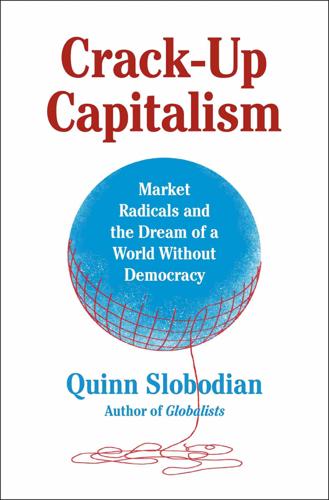
Crack-Up Capitalism: Market Radicals and the Dream of a World Without Democracy
by
Quinn Slobodian
Published 4 Apr 2023
Paul Romer, “Why the World Needs Charter Cities,” TED Global (Oxford, UK), July 2009, https://www.youtube.com/watch?v=mSHBma0Ithk. 29. Romer and Sanchez, “Urban Prosperity in the RED.” 30. Engman, “Success and Stasis in Honduras’ Free Zones,” 51, 54. 31. Brian Hutchison, “Opportunity in ‘Charter City,’” National Post, December 27, 2012, Global Newsstream. 32. Brandon Fuller and Paul Romer, Success and the City: How Charter Cities Could Transform the Developing World (Ottawa: MacDonald Laurier Institute, April 2012), 15. 33. Fuller and Romer, Success and the City: How Charter Cities Could Transform the Developing World, 16. 34.
…
The board of advisors also included the former CEO of the Dubai International Finance Center and the chief international trade advisor to the hard Brexit faction of the UK Conservative Party. https://prospera.hn/about/. 63. J. Neil Schulman, Alongside Night (New York: Ace, 1979), 106. 64. Schulman, Alongside Night, 87–90. 65. “Charter Cities Podcast Episode 12: Erick Brimen on Próspera and the Birth of the First Charter City in Honduras,” Charter Cities Institute, September 8, 2020, https://chartercitiesinstitute.org/podcast/charter-cities-podcast-episode-12-erick-brimen/. 66. Prospera Arbitration Center, https://pac.hn/, June 3, 2022. 67. Schumacher, ArchAgenda Debates 1: Cyber Urban Incubators in the Blockchain Metaverse-Chicago Architecture Biennial, October 16, 2021. 68.
…
Uber set out to solve the taxi. Theranos set out to solve the blood test. The idea of the charter city borrowed its sheen from the idea of charter schools, the privately backed start-up educational institutions that tripled in number from 2000 to 2012.5 The Wall Street Journal made the connection, comparing Romer’s charter city model to a charter school “free of union contracts and public bureaucracy.”6 For mainstream America in the 2000s, charter schools were targeting the outmoded institutions of public schools. Charter cities targeted the outmoded institution of nation-states. The first place where Romer’s plan touched down was on the island of Madagascar, off the southeastern coast of Africa.
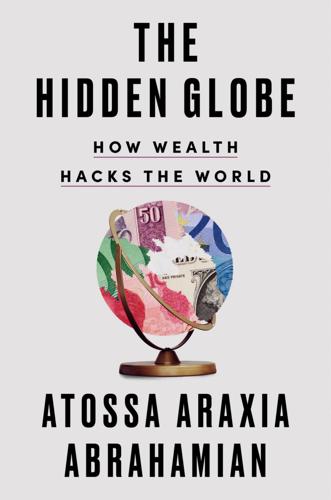
The Hidden Globe: How Wealth Hacks the World
by
Atossa Araxia Abrahamian
Published 7 Oct 2024
Romer had decided to take his concept further and to extend the fiscal autonomy of the zone into something more far-reaching and political. His creations would be states within states. He called them charter cities. 5. Hacking the World The ultimate, hidden truth of the world is that it is something that we make, and could just as easily make differently. —David Graeber I hesitated before deciding to include a chapter on charter cities in this book, in part because the idea is not so new. For one thing, a charter city, if we use Paul Romer’s working definition, is a territory located in one state that operates under another state’s rules, or charter.
…
Buoyed by Romer’s (quasi-)endorsement and riding high on booming tech stocks, a new guard, out of Silicon Valley, had taken up the mantle. In their ideal vision, the foreign state administering the charter city from afar was replaced with a private company that enjoyed similar concessions but answered to private interests, not the public. This was a departure from Romer’s state-centric vision. The libertarians started think tanks, launched consultancies, and published journals. They opened investment firms and organized conferences. And in the process, they made “charter cities” rhyme with a brand of outlandish libertarianism inspired by Ayn Rand and Austrian economics. Some of these groups have moved away from these politics and, in the case of the Washington, D.C.
…
(“I am optimistic that it can create an example of what good governance can look like,” one of Minicircle’s founders told a documentary filmmaker, “but I worry [the founders] can be a bit historically naïve or historically illiterate, and because of that end up perpetuating the same cycles that impact the Third World.”) If Próspera does succumb, I have no doubt that another attempt will pop up somewhere. The seal’s been broken. There’s no going back. Which brings me to the second reason why I chose to write about charter cities: for better or worse, in some form or another, I believe that charter cities will exist—and it’s incredibly important we get them right. It’s easy to imagine a private jurisdiction becoming what amounts to a company town, governed by corporate charter, full of workers who have no say in their plight. History is full of bleak examples: consider Henry Ford’s exploits in the Amazon.
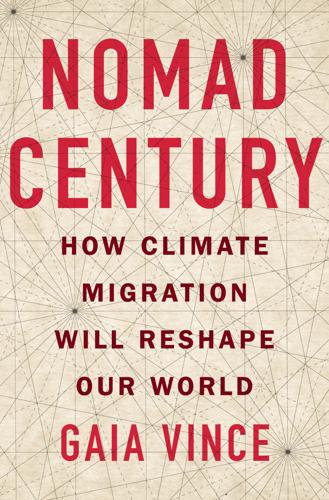
Nomad Century: How Climate Migration Will Reshape Our World
by
Gaia Vince
Published 22 Aug 2022
As the climate shifts and migration increases, it makes sense for nations that share borders to strengthen their relationships and find common solutions around issues from labour and goods to energy and resources, gaining shared resilience. CHARTER CITIES Another option might be charter cities, set up and operating under a different set of rules to the jurisdiction they are next to. Charter cities were originally proposed by Nobel Prize-winning economist Paul Romer in 2009, as a new type of governance structure to boost development in poor nations. According to his plan, poor countries would donate territory to a wealthy, well-run nation, such as Switzerland, to govern effectively. Romer’s idea is that the citizens of the charter city would benefit from good governance, safety and wealth; the host nation would receive taxes, plus the benefits of having a well-developed economic hub in their country; and the governing nation would get investment opportunities and comparatively cheap labour and resources.
…
Romer’s model wouldn’t be suitable for the needs of the coming decades, of course, as large populations will be migrating away from climate-ravaged lands – and the idea that poor countries exchange sovereignty for a hike out of poverty is likely to prove unpalatable for many. Nevertheless, private charter cities are already under way, mooted as an economic development model that enables residents to escape climate impacts. Honduras has created an embryonic charter city called Próspera ZEDE (the Spanish acronym for ‘Zone for Employment and Economic Development’) on a small, 58-acre plot of unoccupied land on its Caribbean island of Roatan. So far, there are just three buildings, but it plans to expand to 10,000 residents by 2025, who will need only to sign a social contract and pay a considerable membership fee, to be a part of the libertarian dream.20 The concept shares elements with the Seasteading movement, a libertarian group of mega-rich preppers intent on building independent floating cities on the high seas.
…
In the longer term, however, people cannot make lives on isolated islands and must be accommodated in wider society. There may well be a role for charter cities, but not in the hazardous equatorial belt, as originally conceived. Instead, they would need to be built at higher latitudes and focus on much larger populations moving to satellite cities, which could be operated by the origin state but located on land, rented or owned, within another state. Charter cities of this model may well be a good solution for states such as Nigeria, Bangladesh or Maldives that could buy or rent land inside a large country such as Canada, Russia or Greenland, effectively gaining habitable territory, for the period of ninety-nine years, say.
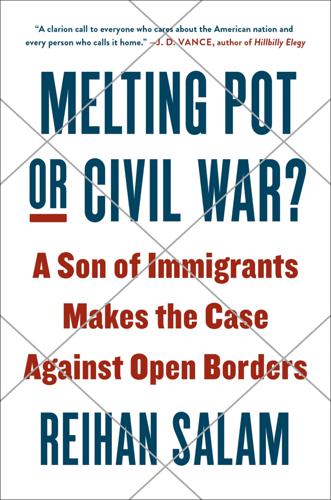
Melting Pot or Civil War?: A Son of Immigrants Makes the Case Against Open Borders
by
Reihan Salam
Published 24 Sep 2018
According to The Economist, the Indian government estimates that as many as twenty million Bangladeshi nationals are living on Indian soil, and independent observers peg the number at fifteen million.26 In recent years, the Bangladeshi influx has sparked intense political resistance, partly because of the fear that Bangladeshi Muslims will change India’s ethnoreligious mix. And there are countless other examples of similarly fraught conflicts, particularly in Africa. Charter cities could offer an invaluable alternative. So how might charter cities emerge? For one, necessity is sure to play a role. In 2015, the Syrian migrant crisis led Alexander Betts and Paul Collier to devise an unorthodox solution. In a Foreign Affairs article,27 they offered a plan that would resettle Syrian refugees close to home.28 While hundreds of thousands of Syrians sought refuge in Europe, millions instead made their way to Lebanon, Jordan, and Turkey.
…
To really take off, though, these special economic zones will need capital, expertise, and market access from the United States and other rich countries. We would be foolish not to provide it. Still, these special economic zones wouldn’t be charter cities as Romer envisioned them. Getting there will take time and confidence on the part of host countries that their sovereignty won’t be unduly compromised and that their own citizens will benefit. It’s time for Americans to roll up their sleeves and help. Eventually, charter cities could achieve the same size and scale of a city like Shenzhen, which has grown from a population of 30,000 in 1980 to more than ten million today. If English settlers could lay the foundations for great cities with new, more responsive systems of government centuries ago, why wouldn’t we expect that today’s migrants could do much the same if given the chance?
…
Growing an existing city has its advantages, and many of the world’s most ambitious new cities have been failures, especially when they’ve been built to glorify a country’s rulers rather than to exploit new economic opportunities. There is, however, one very big advantage to building new cities: their founders can learn from past experiences and adopt new institutions and technologies with relatively little blowback from incumbent interests. For years, the economist Paul Romer has championed the idea of “charter cities,” that is, new cities that are established with rules and institutions carefully designed to foster economic growth and upward mobility for the world’s poor.23 As an example, he points to the experience of Shenzhen, a teeming metropolis of more than ten million that as recently as 1980 was little more than a fishing village.
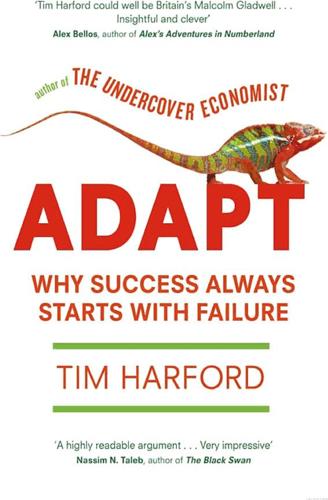
Adapt: Why Success Always Starts With Failure
by
Tim Harford
Published 1 Jun 2011
Romer is not short of self-confidence: a brilliant and influential scholar of economic growth, he walked away from research to make a small fortune as an internet entrepreneur, before turning down the job of Chief Economist of the World Bank to evangelise for the idea of charter cities. But is his extreme version of the charter city idea necessary? Romer thinks so: he argues that foreign ownership could be a way for shaky governments to import credibility, in much the same way that democratically elected politicians sometimes hand control of interest rates to technocrats at the central bank, or cede some sovereignty to international institutions. But perhaps that puts too much emphasis on the problem of credibility. After all, Lübeck – Sebastian Mallaby’s example of the original charter city – was an entirely domestic affair: Henry the Lion didn’t need to sign a treaty with the Pope or Henry II of England or anyone else.
…
As the journalist Sebastian Mallaby points out, Henry’s project for Lübeck was ‘a bit like trying to build a new Chicago in modern Congo or Iraq’ – and that is pretty much what the economist Paul Romer now wants to do. Romer is the founder of the ‘charter cities’ movement, and he argues that the world needs entirely new cities with their own infrastructure and, in particular, their own rules on democracy, taxes and corporate governance. These cities, like Lübeck, would be governed by a set of rules designed to attract ambitious people. According to Mallaby, Lübeck represented ‘a formula for creating order out of chaos and prosperity amid backwardness’ in the Middle Ages. It is just such a formula that Paul Romer is now promoting. There is plenty of evidence that charter cities could work in today’s world. There’s Singapore, long a successful independent city state off the coast of Malaysia; Hong Kong, for many years a British enclave on the South China Sea; more recently, Shenzhen, thirty years ago a fishing village not far from Hong Kong, now a city to rival Hong Kong itself after being designated China’s first ‘special economic zone’.
…
After all, Lübeck – Sebastian Mallaby’s example of the original charter city – was an entirely domestic affair: Henry the Lion didn’t need to sign a treaty with the Pope or Henry II of England or anyone else. He just made a promise to prospective citizens, and that seemed to be enough. Charter cities have an entirely different appeal, which Henry the Lion captured perfectly with Lübeck: they allow both variation and selection on a grand scale. The variation emerges because charter cities are zones in which the tariffs, laws and taxes are different from those in the rest of the country. This has nothing to do with foreign ownership as such. Shenzhen, for example, is an entirely Chinese affair, but the rules in Shenzhen have been different from the rules elsewhere in China.
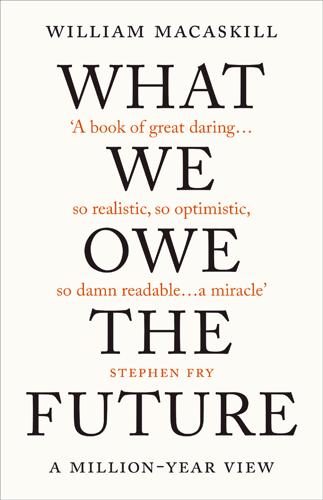
What We Owe the Future: A Million-Year View
by
William MacAskill
Published 31 Aug 2022
Average yearly income grew by a factor of two hundred over forty years.127 Its success inspired broader economic reforms across China, which, over the course of the last forty years, have lifted hundreds of millions of people out of poverty.128 Charter cities are often promoted by those who want to see more economically liberal policies. But there is no necessary connection between these two ideas. For almost every social structure we can imagine, we could have a charter city based on that idea; there could be Marxist charter cities and environmentalist charter cities and anarchist communitarian charter cities. We could find out, empirically, which of these brings about the best society. And, in addition to creating a diversity of formal institutions, we could try to cultivate a diversity of cultures, too. Third, we would want to structure things such that, globally, cultural evolution guides us towards morally better views and societies.
…
One particularly interesting idea for promoting cultural diversity of societies is that of charter cities: autonomous communities with laws different from their surrounding countries that serve as laboratories for economic policies and governance systems. For example, in 1979 Deng Xiaoping created a special economic zone around the city of Shenzhen,126 giving it more liberal economic policies than the rest of China. Average yearly income grew by a factor of two hundred over forty years.127 Its success inspired broader economic reforms across China, which, over the course of the last forty years, have lifted hundreds of millions of people out of poverty.128 Charter cities are often promoted by those who want to see more economically liberal policies.
…
Aymara language, 223 Babylonian Talmud, 78 Back to the Future (film), 173–174 Baruch Plan, 41–42 Bay of Pigs crisis, 37 below-neutral wellbeing, 170–171, 193–194, 201 Benatar, David, 192 Benezet, Anthony, 51–52, 72 Bezos, Jeff, 85 Bible: rigidity following early plasticity, 42 biomass of animals and humans, 211–212 biomedical technologies, 62 biosecurity, 228–229 biotechnology anthrax, 109–111 averting civilisational stagnation through advances in, 156 bioweapons, 109–112, 114, 116, 128–131, 142, 228, 321 Cold War, 117 effects of all-out nuclear war, 131 engineered pathogens, 107–113 gene sequencing and editing, 108 progress and impacts of, 107–108 synthetic biology, 108, 112 birds, evolution of, 56–57 Black Death, 66, 125–126 Black-White happiness gap, 205 blogging, 237 Boemeke, Isabelle, 239 Boeree, Liv, 37–38 Bonesteel, Charles, 40–41 Bosnia: societal resilience, 127 Bostrom, Nick, 86, 225 Brissot, Jacques Pierre, 67 Britain abolition of slavery, 51–52 the contingency of abolition, 63–71 decline of the Roman Empire, 124 history of civilisational stagnation, 157 US War of Independence, 68–69 women’s suffrage, 53 See also United Kingdom Broome, John, 171 Brown, Christopher Leslie, 49, 63, 68 Buddhism cultural and values conquest, 92 spread through China, 77 buildering, 34–35 bunkers, building for disaster preparedness, 228 Burdekin, Katharine, 97 Cambodia, 60 Capitalism and Slavery (Williams), 63 Capra, Frank, 42 carbon capture and storage, 141 carbon dioxide concentrations, 137, 228 activism targeting, 232 early awareness of, 42 effect of global catastrophe on agriculture, 133, 137 long-term effects, 31 long-term effects of having children, 187–188 return to preindustrial levels, 24 transition from fossil fuels, 144, 161, 230 carbon footprint: the impact of vegetarianism, 232 carbon generation, 42 carbon tax, 43 career capital, accruing, 235 career choices: the impact on the future, 234–240 catastrophes, global disaster preparedness, 228 population decline and civilisational stagnation, 159 postcatastrophe reliance on preindustrial technology, 131–132 societal resilience and recovery from global catastrophes, 125–134 Catharism, extinction of, 60 cattle farming, 208–209 Caviola, Lucius, 199 challenge trials for vaccine development, 238 Chapman, Clark R., 106 charcoal as alternative fuel, 139 charter cities, 100 chickens, suffering of, 208–209 children building a better future for, 245 cultural evolution and caring for, 59 enslavement of, 48 fertility subsidies, 155–156 the fragility of identity, 173–176 the intuition of neutrality, 171–172, 176–177 the longterm positive impacts of, 187–188 the value of having, 234 China abolition of slavery, 66 aftermath of Roman decline, 124–125 charter cities, 100 climate change goals, 135 COVID-19 pandemic response, 96–97 Hundred Schools of Thought, 75–79 persistence of values, 83–84 population decline, 155 the risks of great power conflict, 114–116 the search for immortality, 84 US relations with, 23 chlorofluorocarbons (CFCs), 230 Christian morality, 71 Christianity: cultural conquest, 92–94 civilisation.

Hit Refresh: The Quest to Rediscover Microsoft's Soul and Imagine a Better Future for Everyone
by
Satya Nadella
,
Greg Shaw
and
Jill Tracie Nichols
Published 25 Sep 2017
Romer posits that rules and laws, which are hard to change and require concessions to be approved, are not optimized for spurring innovation and creating economic growth. Charter cities, on the other hand, are experimental reform zones engineered entirely to create jobs and growth. Citizens could opt in or not. Some will be ready and some won’t. His illustration is Hong Kong and Shenzhen. Hong Kong, located in China but ruled for generations by Great Britain, was free of antimarket Communist rule and became an economic engine, attracting and training workers. Deng Xiaoping, grasping that China needed to become more open in order to grow, created a de facto charter city in nearby Shenzhen, which could take advantage of its neighbor’s talent pool and infrastructure.
…
Unpublished manuscript, December 2015. https://pdfs.semanticscholar.org/4159/521bb401c139b440264049ce0af522033b5c.pdf?_ga=1.27764476.1700601381.1481243681. Lemann, Nicholas. “The Network Man: Reid Hoffman’s Big Idea.” The New Yorker, October 12, 2015. http://www.newyorker.com/magazine/2015/10/12/the-network-man. Romer, Paul. “Interview on Urbanization, Charter Cities and Growth Theory.” Paul Romer (blog), April 29, 2015. https://paulromer.net/tag/charter-cities/. Calmes, Jackie. “Who Hates Free Trade Treaties? Surprisingly, Not Voters.” New York Times, September 21, 2016. http://www.nytimes.com/2016/09/22/us/politics/who-hates-trade-treaties-surprisingly-not-voters.html. “Trans-Pacific Partnership.” International Trade Administration, Department of Commerce, Washington, DC.
…
See also United Kingdom British Raj, 16, 186–87 broadband infrastructure, 225 Buddha, Gautama, 9 Burgum, Doug, 47–48 cable TV, 30 Cairo, 214, 218 cameras, 150 Canada, 230 cancer, 142, 159, 214 Candidate, The (film), 75 capabilities, 122–23, 141 capitalism, 237–38 late-stage, 221 Capossela, Chris, 3, 71, 81–82 Carnegie Mellon, 3 Carney, Susan L., 177 Carroll, Pete, 4 Case, Anne, 236 Cavium Networks, 20 CD-ROM, 28 CEO as curator of culture, 100, 241 “disease,” 92 panoramic view of, 118 cerebral palsy, 8–10 Chang, Emily, 129 charter city, 229 Cheng, Lili, 197 chess, 198–99 Chik, Joy, 58 child exploitation, 190 Chile, 223, 230 China, 86, 195, 220, 222, 229, 232, 236 chip design, 25 CIA, 169 Cisco, 174 civil liberties, 172–73 civil rights, 24 civil society, 179 Civil War, 188 clarity, 119 Clayton, Steve, 155 client/server era, 45 climate change, 142, 214 Clinton, Hillary, 230 cloud, 13, 41–47, 49, 51–62, 68, 70, 73, 81, 88, 110, 125, 129, 131, 137, 140, 150, 164, 166, 172, 180–81, 186, 189–92, 216, 219, 223–25, 228 cloud-first mission and, 57–58, 70, 76, 79, 83 public, 42–43, 57 Cloud for Global Good, 240–41 Codapalooza, 104 cognition, 89, 150, 152–53 Cohen, Leonard, 10 collaboration, 88, 102–3, 106–8, 126, 135, 163–64, 166, 200 collaborative robots (co-bots), 204 collective IQ, 142, 143 Colombia, 78 Columbia University, 165 Comin, Diego, 216–17, 226 commitment, shared, 77, 119 Common (hip hop artist), 71 Common Objects in Context challenge, 151 communication, 76–77 Compaq, 29 comparative advantage, 222, 228 competition, internal, 52 competitive zeal, 38–39, 70–71, 102 competitors, 39 partnerships and, 78, 125–38 complexity, 25, 224 computers early, 21–22, 24–26 future platforms, 110–11 programs by, 153–54 computing power, massive, 150–51 Conard, Edward, 220 concepts, 122–23, 141 consistency, 77–78, 182 Constitution Today, The (Amar), 186–87 constraints, 119 construction companies, 153 consumers, 49–50, 222 context, shared, 56–57 Continental Congress, 185 Continuum, 73 Convent of Jesus and Mary (India), 19 Cook, Tim, 177 cook stoves, 43 coolness, 75–76 core business, 142 Cortana, 125, 152, 156–58, 195, 201 Couchbase company, 58 counterintuitive strategy, 56–57 Coupland, Douglas, 74 Courtois, Jean-Philippe, 82 courts, 184–85 Covington and Burling lawyers, 3 Cranium games, 7 creativity, 58, 101, 119, 201, 207, 242 credit rating, 43, 204–5 Creed (film), 44–45 cricket, 18–22, 31, 35–40, 115 Cross-country Historical Adoption of Technology (CHAT), 217 culture bias and, 205 “live site first,” 61 three Cs and, 122–23, 141 transforming, 2, 11, 16, 40, 76–78, 81–82, 84, 90–92, 98–103, 105, 108–10, 113–18, 120, 122–23, 241–42 Culture (Eagleton), 91 Curiosity (Mars rover), 144 customer needs, 42, 59, 73, 80, 83, 88, 99, 101–2, 108, 126, 138 customization, 151 cybersecurity, 171, 190 cyberworld, rules for, 184 data, 60, 151 data analytics, 50 databases, 26 Data General company, 68 data management, 54 data platform, 59 data security, 175–76, 188–89 Deaton, Angus, 236 Deep Blue, 198–99 deep neural networks, 153 Delbene, Kurt, 3, 81–82 Delhi, India, 19, 31, 37 Dell, 63, 87, 127, 129–30 Dell, Michael, 129 democracy, 180 democratization, 4, 13, 69, 127, 148, 151–52 Deng Xiaoping, 229 Depardieu, Gerard, 33 design, 50, 69, 141, 239 desktop software, 27 Detroit, 15, 225, 233 developed economies, 99–100 share of world income, 236 developing economies, 99–100, 217, 225 device management solutions, 58 digital assistants, 142, 156–58, 195–98, 201 digital cable, 28 digital evidence, 191–92 Digital Geneva Convention, 171–72 digital ink, 142 digital literacy, 226–27 digital publishing laws, 185 digital transformation, 70, 126–27, 132, 235 dignity, 205 disabilities, 103, 200 disaster relief, 44 Disney, 150 disruption, 13 distributed systems, 49 diversity, 101–2, 108, 111–17, 205–6, 238, 241 Donne, John, 57 drones, 209, 226 Drucker, Peter, 90 dual users, 79 Dubai, 214, 228 Duke University, 3 Dupzyk, Kevin, 147 D-Wave, 160 Dweck, Carol, 92 dynamic learning, 100 Dynamics, 121 Dynamics 365, 152 dyslexia, 44, 103–4 Eagleton, Terry, 91 earthquakes, 44 EA Sports, 127 economic growth, 211–34 economic inequality, 12, 207–8, 214, 219–21, 225, 227, 236–41 Edge browser, 104 education, 42–44, 78, 97, 104, 106–7, 142, 145, 206–7, 224, 226–28, 234, 236–38 Egypt, 218–19, 223, 225 E-health companies, 222–23 8080 microprocessor, 21 elasticity, 49 electrical engineering (EE), 21–22 elevator and escalator business, 60 Elop, Stephen, 64, 72 email, 27, 169–73, 176 EMC, 129 emotion, 89, 197, 201 emotional intelligence (EQ), 158, 198 empathy, 6–12, 16, 40, 42–43, 93, 101, 133–34, 149, 157, 182, 197, 201, 204, 206, 226, 239, 241 employee resource groups (ERGs), 116–17 employees, 66–68, 75, 138 diversity and, 101, 111–17 empowerment and, 79–80, 126 global summit of, 86–87 hackathon, 10–11 talent development and, 117–18 empowerment, 87–88, 98–99, 106, 108–10, 126 encryption, 161–62, 175, 192–93 energy, generating across company, 119 energy costs, 237 Engelbart, Doug, 142 Engelbart’s Law, 142–43 engineers, 108–9 Enlightiks, 222–23 Enterprise Business, 81 entertainment industry, 126 ethics, 195-210, 239 Europe, 193 Excel, 121 experimental physicists, 162–64 eye-gaze tracking, 10 Facebook, 15, 44, 51, 125, 144, 174, 200, 222 failures, overcoming, 92, 111 Fairfax Financial Holdings, 20 fairness, 236 Federal Bureau of Investigation (FBI), 170, 177–78, 189 Federal Communications Commission (FCC), 28 fear of unknown, 110–11 feedback loop, 53 fertilizer, 164 Feynman, Richard, 160 fiefdoms, 52 field-programmable gate arrays (FPGAs), 161 Fields Medal, 162 firefighters, 43, 56 First Amendment, 185, 190 Flash, 136 focus, 135–36, 138 Foley, Mary Jo, 52 Ford Motor Company, 64 foreign direct investment, 219, 225, 229 Foreign Intelligence Surveillance Act (FISA), 173 Fourth Amendment, 185–88, 190, 193 France, 223, 236 Franco, James, 169 Franklin, Benjamin, 186 Freedman, Michael, 162, 166 free speech, 170–72, 175, 179, 185, 190, 238 Fukushima nuclear plant, 44 G20 nations, 219 Galaxy Explorer, 148 game theory, 123–24 Gandhi, Mohandas Mahatma, 16 Gartner Inc., 145 Gates, Bill, 4, 12, 21, 28, 64, 46, 67–69, 73–75, 87, 91, 127, 146, 183, 203 Gavasker, Sunil, 36 GE, 3, 126–27, 237 Gelernter, David, 143, 183 Geneva Convention, Fourth (1949), 171 Georgia Pacific, 29 Germany, 220, 223, 227–36 Gervais, Michael, 4–5 Gini, Corrado, 219 Gini coefficient, 219–21 GLEAM, 117 Gleason, Steve, 10–11 global competitiveness, 78–79, 100–102, 215 global information, policy and, 191 globalization, 222, 227, 235–37 global maxima, 221–22 goals, 90, 136 Goethe, J.W. von, 155 Go (game), 199 Goldman Sachs, 3 Google, 26, 45, 70–72, 76, 127, 160, 173–74, 200 partnership with, 125, 130–32 Google DeepMind, 199 Google Glass, 145 Gordon, Robert, 234 Gosling, James, 26 government, 138, 160 cybersecurity and, 171–79 economic growth and, 12, 223–24, 226–28 policy and, 189–92, 223–28 surveillance and, 173–76, 181 Grace Hopper, 111–14 graph coloring, 25 graphical user interfaces (GUI), 26–27 graphics-processing unit (GPU), 161 Great Convergence, the (Baldwin), 236 Great Recession (2008), 46, 212 Greece, 43 Green Card (film), 33 Guardians of Peace, 169 Gutenberg Bible, 152 Guthrie, Scott, 3, 58, 60, 82, 171 H1B visa, 32–33 habeas corpus, 188 Haber, Fritz, 165 Haber process, 165 hackathon, 103–5 hackers, 169–70, 177, 189, 193 Hacknado, 104 Halo, 156 Hamaker, Jon, 157 haptics, 148 Harvard Business Review, 118 Harvard College, 3 Harvey Mudd College, 112 Hawking, Stephen, 13 Hazelwood, Charles, 180 head-mounted computers, 144–45 healthcare, 41–42, 44, 142, 155–56, 159, 164, 198, 218, 223, 225, 237 Healthcare.gov website, 3, 81, 238 Heckerman, David, 158 Hewlett Packard, 63, 87, 127, 129 hierarchy, 101 Himalayas, 19 Hindus, 19 HIV/AIDS, 159, 164 Hobijn, Bart, 217 Hoffman, Reid, 232, 233 Hogan, Kathleen, 3, 80–82, 84 Holder, Eric, 173–74 Hollywood, 159 HoloLens, 69, 89, 125, 144–49, 236 home improvement, 149 Hong Kong, 229 Hood, Amy (CFO), 3, 5, 82, 90 Horvitz, Eric, 154, 208 hospitals, 42, 78, 145, 153, 223 Hosseini, Professor, 23 Huang, Xuedong, 151 human capital, 223, 226 humanistic approach, 204 human language recognition, 150–51, 154–55 human performance, augmented by technology, 142–43, 201 human rights, 186 Hussain, Mumtaz, 36, 37 hybrid computing, 89 Hyderabad, 19, 36–37, 92 Hyderabad Public School (HPS), 19–20, 22, 37–38, 136 hyper-scale, cloud-first services, 50 hypertext, 142 IBM, 1, 160, 174, 198 IBM Watson, 199–200 ideas, 16, 42 Illustrator, 136 image processing, 24 images, moving, 109 Imagine Cup competition, 149 Immelt, Jeff, 237 Immigration and Naturalization Act (1965), 24, 32–33 import taxes, 216 inclusiveness, 101–2, 108, 111, 113–17, 202, 206, 238 independent software vendor (ISV), 26 India, 6, 12, 17–22, 35–37, 170, 186–87, 222–23, 236 immigration from, 22–26, 32–33, 114–15 independence and, 16–17, 24 Indian Administrative Service (IAS), 16–17, 31 Indian Constitution, 187 Indian Institutes of Technology (IIT), 21, 24 Indian Premier League, 36 IndiaStack, 222–23 indigenous peoples, 78 Indonesia, 223, 225 industrial policy, 222 Industrial Revolution, 215 Fourth or future, 12, 239 information platforms, 206 information technology, 191 Infosys, 222 infrastructure, 88–89, 152–53, 213 innovation, 1–2, 40, 56, 58, 68, 76, 102, 111, 120, 123, 142, 212, 214, 220, 224, 234 innovator’s dilemma, 141–42 insurance industry, 60 Intel, 21, 45, 160, 161 intellectual property, 230 intelligence, 13, 88–89, 126, 150, 154–55, 160, 169, 173, 239 intelligence communities, 173 intensity of use, 217, 219, 221, 224–26 International Congress of the International Mathematical Union, 162 Internet, 28, 30, 48, 79, 97–98, 222 access and, 225–26, 240 security and privacy and, 172–73 Internet Explorer, 127 Internet of Things (IoT), 79, 134, 142, 228 Internet Tidal Wave, 203 Intersé, 3 Interview, The (film), 169–71 intimidation, 38 investment strategy, 90, 142 iOS devices, 59, 72, 123, 132 iPad, 70, 141 iPad Pro, 123–25 iPhone, 70, 72, 85, 121–22, 125, 177–79 Irish data center, 176, 184 Islamic State (ISIS), 177 Istanbul, 214 Jaisimha, M.L., 18, 36–37 Japan, 44, 223, 230 Japanese-American internment, 188 JAVA, 26 Jeopardy (TV show), 199 Jha, Rajesh, 82 jobs, 214, 231, 239–40.
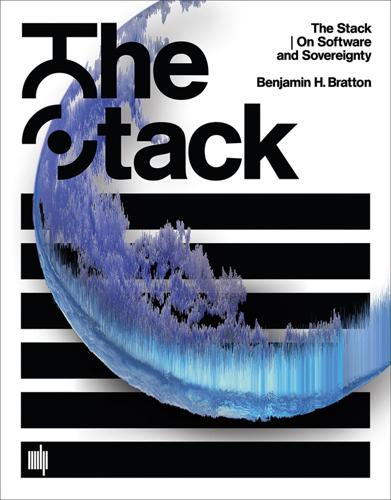
The Stack: On Software and Sovereignty
by
Benjamin H. Bratton
Published 19 Feb 2016
Bratton, “Interview by Metahaven,” October 2011, http://www.bratton.info/projects/texts/interview-by-metahaven/, and “The Cloud, the State, and the Stack: Metahaven in Conversation with Benjamin Bratton,” December 16, 2012, http://mthvn.tumblr.com/post/38098461078/thecloudthestateandthestack. 5. See http://urbanizationproject.org/blog/charter-cities. Charter Cities represents a plan to introduce new legal frameworks for new or existing cities, turning them into a parallel to Special Economic Zones, here Special Political Zones. New York University economist Paul Romer is a leading advocate for the vision. 6. See this discussion of Gelernter's influence on the conceptual development of the Cloud: David Gelernter, John Markoff, and Clay Shirky, “Lord of the Cloud,” Edge, April 29, 2009, http://edge.org/conversation/lord-of-the-cloud.
…
The growth of new cities, almost from scratch, but mostly on top of where old ones stood a few years ago, drew on the fungibility of enforcing this credentialization of infrastructural access. Elsewhere, a new kind of tabula rasa urbanism is seen in the charter city movement, as evangelized by New York University economist Paul Romer. The city remains a crucial site for challenges to traditional spatial models of sovereignty and innovation in what might augment or displace them, and Romer has advised plans for a “charter city” in Trujillo, Honduras, one administered by the courts of Mauritius and, in principal, open to qualified persons who may choose to reside there. Here individual sovereignty is derived from the access to and use of a common urban infrastructure network more than autochthonous genealogy.
…
At the same time that Cloud platforms also take on traditional governing assignments such as public cartography, legal identity, currency, protocol allegiance, even patriotism, states themselves also evolve toward becoming Cloud-based entities.4 In combining these, a Cloud Polis is built of thickened plural geographies and noncontiguous jurisdictions; it mixes some aspects of US superjurisdiction over the Cloud (and over state-space) with others that resemble the charter cities carving new partially privatized polities from the whole cloth of desovereigned lands.5 These platforms extract revenue from the cognitive capital of their User-citizens, who trade attention in exchange for global infrastructural services that provide each of them a fixed and formal online identity and a license to use its services.
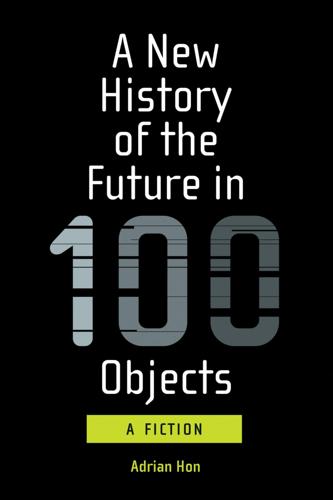
A New History of the Future in 100 Objects: A Fiction
by
Adrian Hon
Published 5 Oct 2020
Takami of Hokkaido University explains: The concept of rechartered cities dates back to the controversial experiments with charter cities in the ’20s. According to their proponents, developing countries would establish special reform zones in which brand-new charter cities would be built, and these cities would be administered with the help of foreign countries and businesses. The host country would gain from a massive influx of capital and good governance, and the foreign countries and businesses would benefit from cheap labor, favorable laws, and increased trade. Charter cities were met with fierce opposition in almost every potential host country, as they were seen as a breach of sovereignty and, even worse, a symbol of neocolonialism.
…
I tell the story of how we became more connected than ever before, with objects like Babel, silent messaging, the Nautilus-1, and the brain bubble—and how we became fragmented both physically and culturally with the Fourth Great Awakening and the biomes. With the Braid collective, the Loop, the Steward medal, and the re-chartered cities, we made tremendous steps forward on our long pursuit of greater equality and enlightenment—but the locked simulation interrogations, the Sudan–Shanghai Letter, the Collingwood meteor, and the downvoted all showed how easy it was for us to lapse back into horror and atrocity. We automated our economy with the UCS Deliverbots, the mimic scripts, the negotiation agents, and the old drones, destroying the entire notion of work and employment in the process.
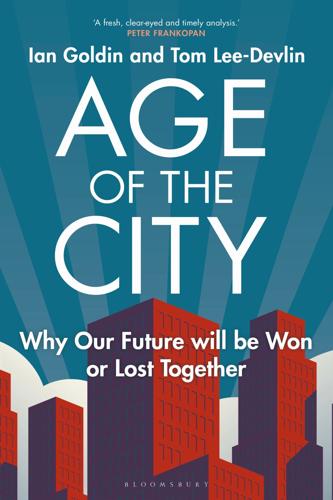
Age of the City: Why Our Future Will Be Won or Lost Together
by
Ian Goldin
and
Tom Lee-Devlin
Published 21 Jun 2023
While nation-states are here to stay, city networks can and must play a supporting role in solving global challenges given the fraying of international relations that is currently underway. More than 300 such inter-city networks already exist today.11 At the extreme, some argue that cities should be set free from the constraints of national governments. One such example of this is the charter city movement, originally championed by Nobel Prize-winning economist Paul Romer. The idea of the charter city movement is to grant municipal governments the right to develop their own system of governance and undertake policy reforms free from the constraints of the existing political system. Enacted in full, it would constitute a significant step back towards the fragmented political landscape of city-states that once prevailed.
…
Index abortion here abstract mathematics here Achaemenid Empire here Adani, Gautam here agglomeration effects here agriculture here, here, here, here, here, here, here, here, here and carbon emissions here and disease here, here productivity here, here vertical farming here Ahmedabad here air-conditioning here, here airports here, here, here, here Albuquerque here Alexandria here Allen, Paul here Allen, Thomas here Altrincham here Amazon here, here, here Amazon rainforest here Amsterdam here Anatolia here Anderson, Benedict here Anheuser-Busch here antibiotics here, here, here Antonine Plague here Anyang here apartment conversions here, here Apple here, here, here Aristotle here Arizona State University here Arlington here Assyrian merchants here Athens, Ancient here, here, here, here, here, here Atlanta here, here Austin here, here, here automation here, here, here, here, here, here, here, here axial precession here Baghdad, House of Wisdom here Baltimore here, here Bangalore here, here Bangkok here Bangladesh here, here, here, here Barlow, John Perry here Bauhaus here Beijing here, here Belmar redevelopment here Berkes, Enrico here Berlin here, here, here Berlin Wall, fall of here Bezos, Jeff here biological weapons here ‘biophilia’ here biospheres here bird flu here Birmingham here, here Black Death here, here, here Blake, William here Bloom, Nick here BMW here ‘bobo’ (bourgeois bohemian) here, here, here Boccaccio, Giovanni here Boeing here, here, here Bogota here Bologna here Bonfire of the Vanities here Borneo here Boston here, here, here Boston University here, here Brand, Stewart here Brazil here, here Brexit here, here, here Bristol here Britain broadcasting here deindustrialization here education here enclosure movement here foreign aid here high-speed rail here, here house prices here immigration here industrialization here, here infant mortality here ‘levelling up’ here life expectancy here mayoralties here per capita emissions here per capita incomes here remote working here social housing here Brixton riots here broadcasting here Bronze Age here, here, here, here bronze, and shift to iron here Brooks, David here Brynjolfsson, Eric here Burgess, Ernest here bushmeat here, here Byzantine Empire, fall of here Cairncross, Frances here Cairo here calendar, invention of here Cambridge, Massachusetts here Cambridge University here canals here, here, here ‘cancel culture’ here Cape Town here Catholic Church here C40 Cities partnership here Chadwick, Edwin here Chang’an (Xi’an) here, here, here, here Charles, Prince of Wales here charter cities here Chengdu here Chiba here Chicago here, here, here, here, here, here, here, here childbirth, average age at here childcare here, here, here, here, here China here ancient here, here, here, here call-centre workers here cereal production here civil strife here and Covid-19 pandemic here Cultural Revolution here definition of cities here economic liberalization here entry into WTO here Household Responsibility System here hukou system here One Child Policy here Open Coastal Cities here per capita emissions here rapid ageing here Special Economic Zones here technology here urbanization here China Towns here Chinese Communist Party here cholera here, here, here, here Chongqing here cities, definition of here Citigroup here city networks here civil wars here Cleveland here, here, here, here climate change here, here, here, here, here, here, here, here, here, here coastal cities here, here, here, here commuting here, here, here, here, here, here, here, here Concentric Zone Model here Confucius here conspiracy theories here Constantinople here, here containerization here, here Copenhagen here, here Corinth here Cornwall here corruption here Coventry here, here covid-19 see pandemics crime rates here ‘cyberbalkanization’ here cycling here, here, here, here Damascus here Dark Ages here, here data science here de Soto, Hernando here deforestation here, here, here, here Delhi here Dell here Delphic oracle here democracy here, here, here Democratic Republic of Congo here, here, here, here, here, here Deng Xiaoping here dengue fever here Denmark here, here Detroit here, here, here, here, here, here, here Dhaka here, here, here, here, here Dharavi here Diana, Princess of Wales here diasporas here, here Dickens, Charles here district heating systems here Dresden here drought here, here, here, here, here, here, here Drucker, Peter here dual-income households here, here Dubai here, here, here Dunbar, Kevin here Düsseldorf here East Antarctic ice sheet here East China Sea here, here Easterly, William here Eastern Mediterranean here, here, here Ebola here Edinburgh here education here, here, here, here, here, here, here, here, here, here, here, here, here, here higher education here, here, here, here; see also universities Japanese school system here Egypt here, here Ancient here, here, here, here Ehrenhalt, Alan here electric vehicles (EVs) here Engels, Friedrich here Enlightenment here Epic of Gilgamesh here Erfurt here Ethiopia here, here Euripides here European Enlightenment here exchange rates here Facebook here, here, here fake news here famine here, here fertility rates here, here, here ‘15-minute city’ principle here Fischer, Claude here Fleming, Alexander here flooding here, here, here, here, here, here, here Florida, Richard here, here food shortages here Ford, Henry here, here foreign aid here fossil fuels here, here France here, here, here, here, here, here, here, here, here, here, here Frankfurt here Franklin, Benjamin here Friedman, Thomas here, here Fryer, Roland here Fukuoka here, here Gaetani, Ruben here Galileo Galilei here Ganges River here Garden Cities here Garden of Eden here Gates, Bill here, here gay community here General Electric here General Motors here genetic engineering here gentrification here, here, here, here, here George, Andy here Germany here, here, here, here, here, here Gingrich, Newt here glaciers here Glasgow here Glass, Ruth here global financial crisis here, here, here global population, size of here globalization here, here, here, here, here, here, here, here, here, here Goldstein, Amy here Google here, here, here Goos, Maarten here Grant, Adam here Great Depression here, here Greece, Ancient here, here, here, here, here Griffith Observatory here Gropius, Walter here Gruen, Victor here Gulf Stream here Haiti here Hamburg here Hanseatic League here, here Harappa here, here Harry, Prince here Harvard University here hate speech here Haussmann, Baron here, here Hawaii here Hazlitt, William here healthcare here, here, here, here, here, here, here, here, here, here heatwaves here, here Hebei here Heckscher, Eli here Herodotus here Himalayas here Hippocrates here Hippodamus here Hittite Empire here HIV here, here Ho Chi Minh City here Holocene here, here, here homophily here Hong Kong here house prices here, here, here, here, here, here, here Houston here, here, here Howard, Ebenezer here Hudson River here Hugo, Victor here Hume, David here Hurricane Katrina here hybrid working, see remote and hybrid working ice melting here, here import substitution industrialization here InBev here India here, here, here, here, here, here, here, here, here fertility rates here Indonesia here, here Indus River here Indus Valley here, here, here inequality here, here, here, here, here, here, here, here, here, here, here infant and child mortality here, here, here, here influenza here, here, here ‘information cocoons’ here Instagram here internet here, here, here, here, here, here invention here, here, here, here, here, here, here, here, here, here irrigation here, here, here, here Italy here Jacobs, Jane here, here, here Jakarta here, here James, Sheila here Japan here, here, here, here, here, here, here, here, here post-war development here schooling system here Jenner, Edward here Jesus Christ here Jobs, Steve here jobs apprenticeships here ‘lousy’ and ‘lovely’ here tradeable and non-tradeable here Justinian Plague here Kashmir here Kenya here Kinshasa here, here Kish here knowledge workers here, here, here, here, here, here, here, here, here, here, here, here Koch, Robert here Kolkata here Korean War here Krugman, Paul here Kushim Tablet here Lagash here Lagos here, here, here, here, here, here, here Lahore here land titling programmes here Las Vegas here Latin language here Lee Kuan Yew here, here Leeds here, here Leicester here Leipzig here, here, here, here Letchworth here life expectancy here, here, here, here, here, here Liverpool here, here Ljubljana here London here, here, here, here, here, here, here bike lanes here Canary Wharf here, here Chelsea here, here, here China Town here cholera outbreaks here City of London here, here coffeehouses here and Covid-19 pandemic here financial services here gentrification here, here, here Great Stink here, here heatwaves here, here house prices here, here hybrid working here, here immigration here, here incomes here, here mayoralty here migration into inner London here population growth here, here, here poverty here, here public transport here, here, here slum housing here social housing here suburbanization here Los Angeles here, here, here, here Louisville here Luoyang here Luther, Martin here Luton Airport here Luxembourg here, here Lyon here McDonald’s here McDonnell Douglas here McLuhan, Marshall here Madagascar here malaria here, here, here, here Malaysia here Mali here malls, reinvention of here Manchester here, here, here, here, here, here, here Manila here Manning, Alan here Markle, Meghan here marriage here Marshall, Alfred here Marshall, Tim here Marx, Karl here Maya here, here measles here, here, here Meetup here mega regions here Mekong River here Memphis, Egypt here, here Mesoamerica here, here Mesopotamia here, here, here metallurgy here metaverse here methane here, here Mexico here Miami here, here, here microbiology here Microsoft here, here, here middle class, rise of here migration policy here millennial generation here Milwaukee here, here Minoan civilization here Mistry, Rohinton here MIT here MMR vaccine here ‘modernization’ theory here Mohenjo-Daro here, here Moretti, Enrico here, here mortality rates here, here, here, here, here, here, here, here, here, here, here, here motor car, invention of here Moynihan, Daniel here Mumbai here, here Mumford, Lewis here, here, here, here Munich here, here Mycenaean civilization here Nagoya here, here Nairobi here Nashville here National Landing, Arlington here Natural History Museum here natural resource exports here Nestlé here Netherlands here network effects here New Economics Foundation here New Orleans here, here New York here, here, here, here, here, here, here, here, here, here carbon emissions here and Covid-19 pandemic here gentrification here, here housing here, here, here incomes here, here Manhattan here, here, here, here, here population growth here, here and rising sea levels here slum housing here suburbanization here, here subway here waste and recycling here New York Central Railroad here New York World Fair here Newcastle here Nextdoor here Niger here Nigeria here, here, here, here Nilles, Jack here, here Nipah virus here Norway here, here Nottingham here Novgorod here ocean and air circulation here office rental and sales prices here Ohlin, Bertil here Oldenburg, Ray here online deliveries here OpenTable here Osaka here, here Oslo here Ottoman Empire here Oxford, population of here Oxford University here Pacific Belt Zone here Padua here Pakistan here, here, here pandemics here, here, here, here, here, here, here, here, here, here, here, here, here, here and zoonotic diseases here paramyxovirus here Paris here, here, here, here, here, here, here, here, here, here, here, here, here, here, here, here Paris Conference (2015) here Park Chung-hee, General here parks here Pasteur, Louis here Pearl River Delta here, here Peñalosa, Enrique here per capita income here Philadelphia here Philippines here, here Phoenix here, here Pixar here plague here, here, here, here Plato here plough, invention of here pollution here, here, here, here air pollution here, here, here, here population growth here, here, here, here, here, here, here, here PORTL here potter’s wheel, invention of here printing press here, here productivity here, here, here, here, here agricultural here, here Protestantism, rise of here public transport here, here, here, here, here, here, here, here, here, here, here, here, here, here Putnam, Robert here, here quarantine here railways here, here, here, here, here high-speed rail here, here, here Ralston Purina here Reagan, Ronald here recycling here, here religion here remote and hybrid working here, here, here, here Renaissance Florence here, here, here renewable energy here, here Republic of Letters here République des Hyper Voisins here ‘resource curse’ here Rheingold, Howard here Ricardo, David here Rio de Janeiro here Riverside, San Francisco here robotics here Rockefeller, John D. here Roman Empire here, here, here Rome, Ancient here, here, here, here, here, here Romer, Paul here Rotterdam here Rousseau, Jean-Jacques here, here Sahel here, here sailboat, invention of here St Augustine here St Louis here, here, here Salesforce here San Diego here San Francisco here, here, here, here, here, here, here, here, here, here, here gentrification here, here hybrid working here, here San Francisco Bay Area here, here, here Santa Fe here São Paulo here Savonarola, Girolamo here Scientific American here Scott, Emmett J. here sea levels, rising here, here, here Seattle here, here, here, here, here, here Second Opium War here Seneca here Seoul here Shanghai here, here, here, here, here Shantou here Sheffield here, here, here Shen Nung here Shenzhen here, here Siemens here Silk Roads here, here Sinclair, Upton here Singapore here, here, here, here Slater, Samuel here smallpox here, here Smith, Adam here, here Snow, John here social capital here social housing here, here social media here, here, here, here, here Socrates here solar panels here South Africa here South Korea here, here, here, here, here, here Southdale Center here specialization here, here, here, here, here, here Spengler, Oswald here Starbucks here Stephenson, Neal here Stewart, General William here Stuttgart here Sub-Saharan Africa here subsidiarity principle here suburbanization here, here, here, here, here, here, here, here, here Sunstein, Cass here Sweden here, here Sydney here, here, here, here, here, here Syrian refugees here, here Taiwan here Tanzania here telegraph here Tempest, Kae here Thailand here Thames River here, here Thatcher, Margaret here, here, here ‘third places’ here Tianjin here Tocqueville, Alexis de here Toffler, Alvin here Tokyo here, here, here, here trade liberalization here trade routes here Trump, Donald here, here tuberculosis here, here, here Twain, Mark here Twitter here, here typhoid here, here typhus here, here Uber here Uganda here Ukraine here, here Umayyad Caliphate here unemployment here, here United Nations here, here United States anti-global populism here anti-trust regulation and industrial consolidation here anxiety and depression here broadcasting here car registrations here cost of education here decline in trust here deindustrialization here Gilded Age here Great Migration here house prices here, here immigration here industrialization here inequality here labour mobility here ‘magnet schools’ here parking spaces here patent filings here per capita emissions here, here per capita incomes here remote working here, here, here return on equity here Rust Belt here schools funding here slavery here socioeconomic mobility here suburbanization here tax revenues here US Federal Housing Authority here US General Social Survey here US Trade Adjustment Assistance Program here universities here, here, here University College London here University of Texas here university-educated professionals here Ur here urban heat island effect here urbanism, subcultural theory of here Uruk here, here, here, here, here vaccines here, here Van Alstyne, Marshall here Vancouver here Venice here, here Vienna here, here Vietnam here voluntary associations here, here Wakefield, Andrew here walking here, here, here Wall Street here Warwick University here Washington University here WELL, The here Welwyn Garden City here wheel, invention of here wildfires here, here William the Conqueror here Wilson, Edward Osborne here, here Wilson, William here World Bank here, here World Health organization here World Trade Organization here World Wide Web here writing, invention of here Wuhan here, here Xiamen here Yangtze River here, here Yangtze River Delta here yellow fever here Yellow River here, here Yersinia pestis here Yokohama here YouTube here, here Yu the Great here Zhuhai here Zoom here Zoroastrianism here BLOOMSBURY CONTINUUM Bloomsbury Publishing Plc 50 Bedford Square, London, WC1B 3DP, UK 29 Earlsfort Terrace, Dublin 2, Ireland BLOOMSBURY, BLOOMSBURY CONTINUUM and the Diana logo are trademarks of Bloomsbury Publishing Plc This electronic edition first published in Great Britain 2023 Copyright © Ian Goldin and Tom Lee-Devlin 2023 Ian Goldin and Tom Lee-Devlin have asserted their right under the Copyright, Designs and Patents Act, 1988, to be identified as Authors of this work All rights reserved.
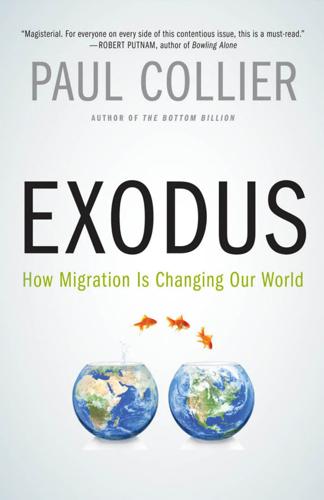
Exodus: How Migration Is Changing Our World
by
Paul Collier
Published 30 Sep 2013
This would approximate to the transfer of institutions, at the city level, from poor societies to rich. Somewhat ironically, precisely the opposite proposal is being made by the eminent economist of the growth process, Paul Romer. He shares the analysis that institutions are fundamental to the difference between poverty and prosperity, but adds a simple-sounding solution: charter cities.32 A charter city would be created on territory that the government of a poor country would cede on a long-term lease to be governed under the laws of some developed country. Bangladesh might cede a patch of land to be ruled under the jurisdiction of Singapore, or for that matter of Britain. With the rule of law so secured, Romer predicts that both investors and people would flood in.
…
See under countries of origin British Medical Association, 126 British Nationalist Party, 241 Brown, Dan, 214 Brown, Gordon, 21, 130, 244 California (United States), 85–86 Cameron, David, 138 Canada East Asian migrants in, 120–121 migration policy in, 12, 100, 157–158, 248–249, 264 national identity in, 17–18, 236–237 population density, 92, 137 Cape Verde, 184–185, 193 capital mobility, 23, 28–29, 36, 51, 121, 129–130, 265 carbon emissions, 257–258 Caribbean migration to Great Britain, 47–48 Catalonia, 235 categorical imperative, 260 charter cities, 103 Chauvet, Lisa, 185–187 Chekhov, Anton, 222 China brain gain versus brain drain in, 218, 220, 252 demography in, 123 economic growth in, 39–40, 201–202 economic productivity in, 149 education emigration and, 201 education investment in, 200 governance in, 183–184 national identity and, 17 remittances to, 207 return migration and, 201–202 Russia and, 249 Clemens, Michael, 58 climate change, 257–258 Clinton, Bill, 31, 200 Collier, Charles, 3, 273 community, concept of, 232–233 Condé, Alpha, 191 Congo, Democratic Republic of, 184 Conservative Party (Great Britain), 15, 103 cooperation experimental games measuring, 63–64, 66–67, 74, 80, 254 foundations of, 31–32 free-rider problem and, 63–64, 66 Kenya study of, 76, 239–240 mutual regard and, 62–63, 67, 83, 87 punishing transgression and, 63–64, 74, 79 trust and, 32, 64, 66–67, 73–74 Corden, Max, 118 Côte d’Ivoire, 191 countries of origin.
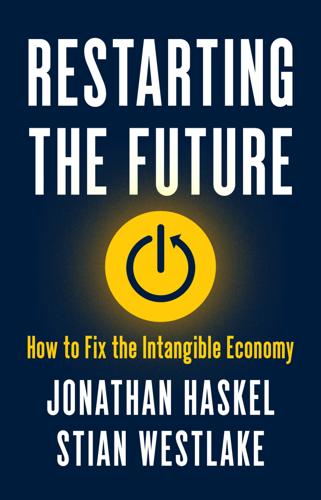
Restarting the Future: How to Fix the Intangible Economy
by
Jonathan Haskel
and
Stian Westlake
Published 4 Apr 2022
The downward-sloping curve drawn in figure C.1 assumes that the more collective and centralised the output, the greater the incentive to allocate time to influence activities and distort information, or the more that information is lacking owing to collective provision lessening experimentation. Thus, the drawn curve describes not the underlying production of collective goods but rather the constraints to such production. 6. Milgrom and Roberts 1988, 1990. 7. Ridley 2020. 8. Paul Romer, “Why the World Needs Charter Cities,” July 1, 2009, https://paulromer.net/video-why-the-world-needs-charter-cities-ted/. 9. In addition, the algorithm they use (for example, scientific publications) might dissuade synergies. 10. Johnson and Koyama 2017, 2. 11. North and Weingast 1989. 12. Johnson and Koyama 2017, 3. 13. O’Reilly and Murphy 2020. 14.
…
For example, the competitive auctioning of contracts for local rubbish collection in the United Kingdom revealed information (the availability of new providers) and likely lowered influence activities, thus shifting the frontier to the right. However, if regulators become more cosy with the industry they regulate, then this curve will shift inwards (to the left). A more extreme example of delegation policy is charter cities. The economist Paul Romer has suggested that a country might delegate the administration and powers of a city within that country to an outside nation, which would administer the city or region and create its own laws and policies without the control of the host nation.8 Other examples are trade agreements, in which countries commonly agree to dispute resolution procedures outside those of the particular country: the Stockholm Chamber of Commerce is a leading arbitrator in disputes outside Sweden on, for example, the alleged appropriation of investment by foreign companies in a particular host country.
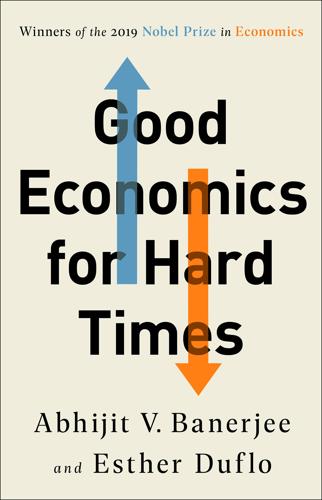
Good Economics for Hard Times: Better Answers to Our Biggest Problems
by
Abhijit V. Banerjee
and
Esther Duflo
Published 12 Nov 2019
Moretti estimates the two effects might actually net out, with the result that national growth will be more or less unaffected.45 Moretti concludes from his reading of this entire literature that regional development is unlikely to be the lever that will help us avoid the end of growth.46 It is possible his assessment is slightly too pessimistic, but the note of warning is certainly valid. While it may make sense for an individual city to try to lure jobs away from another, this is unlikely to be a large win for a country as a whole, unless it is a very small country (the city state of Singapore, for example) that can grow at the expense of others. CHARTER CITIES It is worth emphasizing, however, that this evidence mainly comes from the United States or Europe. It could be that the developing world is quite different in this respect. Certainly, high-quality urban infrastructure is much more concentrated in a few cities in most of these countries, and a case could be made both for building more “high quality” cities and for making the few existing big cities more livable in order to promote economic growth.
…
He wants these countries to build cities where creative people would want to come together and new ideas would be born out of the cross-pollination. Cities that would be business friendly but also genuinely livable—Shenzhen without the pollution and the traffic. Unusually for a successful academic, he believed and cared enough in his message to set up a nonprofit think tank to help in the creation of what he called “charter cities.” These would be giant protected enclaves (Romer wants hundreds of them around the world, each of them hosting eventually at least a million people) that live by Romerian rules within nations that do not. There would be a contract by which the national government agreed that a third-party government, from a developed country, would enforce those rules.
…
They deviated from the project from the get-go when they decided not to use the oversight of a third-party government. It eventually turned out that the Honduran government was more interested in Romer’s name and fame than his counsel, and when it signed a deal with an American entrepreneur with a strong taste for totally unregulated capitalism to develop the ZEDEs, Romer walked out. This story suggests charter cities are unlikely to hold the key to sustained growth in developing countries for the very good reason that the internal political compulsions the charter is intended to hold at bay often have a way of biting back. CREATIVE DESTRUCTION To summarize the previous sections, regional spillovers seem real, but based on the limited evidence we have, probably not powerful enough for the task of keeping growth going at the national level.
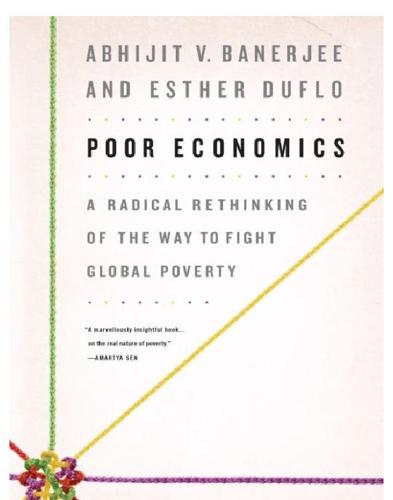
Poor Economics: A Radical Rethinking of the Way to Fight Global Poverty
by
Abhijit Banerjee
and
Esther Duflo
Published 25 Apr 2011
Chapter 10 1 The argument was made in the 1970s by Peter Bauer; see e.g., Peter Thomas Bauer, Dissent on Development (Cambridge: Harvard University Press, 1972). 2 Ritva Reinikka and Jakob Svensson, “The Power of Information: Evidence from a Newspaper Campaign to Reduce Capture,” working paper, IIES, Stockholm University (2004). 3 See, for example, Easterly’s post on randomized control trials, available at http://aidwatchers.com/2009/07/development-experiments-ethical-feasible-useful/. 4 See, for example, Jeffrey Sachs, “Who Beats Corruption,” available at http://www.project-syndicate.org/commentary/sachs106/English. 5 Daron Acemoglu and James Robinson, Economic Origins of Dictatorship and Democracy (New York: Cambridge University Press, 2005). 6 Daron Acemoglu and James Robinson, Why Nations Fail (forthcoming, Crown, 2012). 7 See, for example,Tim Besley and Torsten Persson, “Fragile States and Development Policy” (manuscript, November 2010), which argues that fragile states are a key symptom of underdevelopment in the world and that such states are incapable of delivering basic services to their citizens. 8 Daron Acemoglu, Simon Johnson, and James Robinson, “The Colonial Origins of Comparative Development: An Empirical Investigation,” American Economic Review 91 (5) (2001): 1369—1401. 9 Abhijit Banerjee and Lakshmi Iyer, “History, Institutions, and Economic Performance: The Legacy of Colonial Land Tenure Systems in India,” American Economic Review 95 (4) (2005): 1190—1213. 10 Dwyer Gunn, “Can ‘Charter Cities’ Change the World? A Q&A with Paul Romer,” New York Times, September 29, 2009; and see “Charter Cities,” available at http://www.chartercities.org. 11 Paul Collier, The Bottom Billion: Why the Poorest Countries Are Failing and What Can Be Done About It (New York: Oxford University Press, 2007); and Paul Collier, Wars, Guns, and Votes: Democracy in Dangerous Places (New York: HarperCollins, 2009). 12 William Easterly, “The Burden of Proof Should Be on Interventionists—Doubt Is a Superb Reason for Inaction,” Boston Review (July–August 2009). 13 See Rajiv Chandrasekaram, Imperial Life in the Emerald City: Inside Iraq’s Green Zone (New York: Knopf, 2006), as well as Easterly’s insightful critique of the army operation manual, available at http://www.huffingtonpost.com/william-easterly/will-us-armys-development_b_217488.html. 14 William Easterly, “Institutions: Top Down or Botton Up,” American Economic Review: Papers and Proceedings 98 (2) (2008): 95–99. 15 See The White Man’s Burden, p. 133. 16 Ibid., p. 72. 17 William Easterly, “Trust the Development Experts—All 7 Billion,” Financial Times, May 28, 2008. 18 The White Man’s Burden, p. 73. 19 Marianne Bertrand, Simeon Djankov, Rema Hanna, and Sendhil Mullainathan, “Obtaining a Driving License in India: An Experimental Approach to Studying Corruption,” Quarterly Journal of Economics (November 2007): 1639–1676. 20 See his presentation on the subject, available at http://dri.fas.nyu.edu/object/withoutknowinghow.html. 21 Rohini Pande and Christopher Udry, “Institutions and Development: A View from Below,” Yale Economic Growth Center Discussion Paper 928 (2005). 22 Monica Martinez-Bravo, Gerard Padro-i-Miquel, Nancy Qian, and Yang Yao, “Accountability in an Authoritarian Regime: The Impact of Local Electoral Reforms in Rural China,” Yale University (2010), manuscript. 23 Benjamin Olken, “Monitoring Corruption: Evidence from a Field Experiment in Indonesia,” Journal of Political Economy 115 (2) (April 2007): 200–249. 24 Abhijit Banerjee, Esther Duflo, Daniel Keniston, and Nina Singh, “Making Police Reform Real: The Rajasthan Experiment,” draft paper, MIT (2010). 25 Thomas Fujiwara, “Voting Technology, Political Responsiveness, and Infant Health: Evidence from Brazil,” University of British Columbia, mimeo (2010). 26 World Bank, World Development Report 2004: Making Services Work for Poor People (2003). 27 Raghabendra Chattopadhyay and Esther Duflo, “Women as Policy Makers: Evidence from a Randomized Policy Experiment in India,” Econometrica 72 (5) (2004): 1409–1443. 28 Leonard Wantchekon, “Clientelism and Voting Behavior: Evidence from a Field Experiment in Benin,” World Politics 55 (3) (2003): 399–422. 29 Abhijit Banerjee and Rohini Pande, “Ethnic Preferences and Politician Corruption,” KSG Working Paper RWP07-031 (2007). 30 Nicholas Van de Walle, “Presidentialism and Clientelism in Africa’s Emerging Party Systems,” Journal of Modern African Studies 41 (2) (June 2003): 297–321. 31 Abhijit Banerjee, Donald Green, Jennifer Green, and Rohini Pande, “Can Voters Be Primed to Choose Better Legislators?
…
Paul Romer, known for his pioneering work on economic growth a couple of decades ago, came up with what seems like a brilliant solution: If you cannot run your country, subcontract it to someone who can.10 Still, running an entire country may be difficult. So he proposes starting with cities, small enough to be manageable but large enough to make a difference. Inspired by the example of Hong Kong, developed with great success by the British and then handed back to China, he developed the concept of “charter cities.” Countries would hand over an empty strip of territory to a foreign power, who would then take the responsibility for developing a new city with good institutions. Starting from scratch, it is possible to establish a set of good ground rules (his examples range from traffic congestion charges to marginal cost pricing for electricity, and of course include legal protection of property rights).
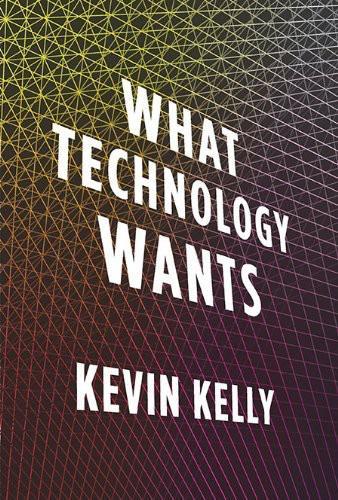
What Technology Wants
by
Kevin Kelly
Published 14 Jul 2010
Cambridge, MA: MIT Press, p. 46. 181 “much that can still be chosen”: Ibid., p. 55. 182 “moments in the progressions”: Ibid., p. 71. 182 The Triad of Biological Evolution: Inspired by Stephen Jay Gould. (2002) The Structure of Evolutionary Theory, Cambridge, MA: Belknap Press of Harvard University Press, p. 1052; designed by the author. 183 The Triad of Technological Evolution: Designed by the author. 184 North Korea at Night: Paul Romer. (2009) “Rules Change: North vs. South Korea.” Charter Cities (January 28, 2010). http://chartercities.org/blog/37/rules-change-north-vs-south-korea. 185 that is sparse and minimal: Paul Romer. (2009) “Paul Romer’s Radical Idea: Charter Cities.” TEDGlobal, Oxford. 185 a matter of what it is designed for: Robert Wright. (2000) Nonzero: The Logic of Human Destiny. New York: Pantheon. 187 technology is our “second self”: Sherry Turkle. (1985) The Second Self.
…
The extension of increasing mutualism from biology into the technium points to yet more sociality and mutualism to come. Right now we are using technology to collaboratively build encyclopedias, news agencies, video archives, and software in groups that span continents. Can we build bridges, universities, and charter cities the same way? Every day over the past century someone asked, What can’t free markets do? We took a long list of problems that seemed to require rational planning or paternal government and instead applied the astoundingly powerful invention of marketplace logic. In most cases, the market solution worked significantly better.

Human Frontiers: The Future of Big Ideas in an Age of Small Thinking
by
Michael Bhaskar
Published 2 Nov 2021
Using the next generation of computers and revolutionary economic models, the emerging science of cliodynamics – the statistical prediction of society – grows apace. Eventually it is used like a weather forecast. As businesses and universities morph into unfamiliar forms, hundreds of millions now work in hybrid, self-sufficient and self-organised creative research collectives. Charter cities, perhaps floating on the sea or in orbit, become hotbeds of political experimentation and usher in a new, more fragmented polity makeup. These freewheeling new statelets are the locus of much of this innovation, themselves representing the biggest experiment in statehood since the birth of the nation state.
…
The numbers are poor compared to preceding decades and no better than preceding centuries. 18 Fukuyama (1992). Psychologically satisfying is here meant in the technical sense Fukuyama meant it: liberal democracies enable recognition, a core human desire, in ways other forms of political organisation do not. 19 Collier (2018) 20 Other candidates might include Modern Monetary Theory, or Charter Cities. 21 See for example the work of Geoff Mulgan on this and the absence of ideas in the arena of the ‘social imagination’. 22 Some may of course question whether this is a good thing; but regardless, it reflected a novel agenda and ambition realised at scale. 23 Critiques of science of the kind presented here are not necessarily recent – see for example Platt (1964). 24 Sarewitz (2016) 25 See for example Wilson (2017), p. 192 26 Landhuis (2016) 27 Ibid. 28 Gusenbauer (2019) 29 Ibid. 30 Arbesman (2012) 31 See Fortunato et al. (2018) 32 Collison and Nielsen (2018) 33 Ibid. 34 Horgan (2015) 35 Fortunato et al. (2018) 36 Mallapaty (2018), Chawla (2019) 37 Wang and Evans (2019) 38 Cowen and Southwood (2019) 39 Rockey (2015) 40 Lakatos (1980) 41 See for example Ritchie (2020) for more detail. 42 Baker (2016) 43 Ritchie (2020) 44 See ibid and Ioannidis (2005) for one of the earlier papers that rang the alarm bell. 45 Arbesman (2012), p. 108 46 Smolin (2008), p. 66.
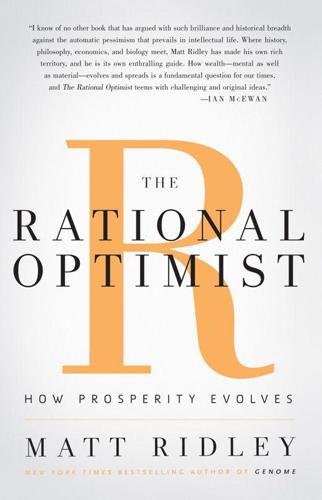
The Rational Optimist: How Prosperity Evolves
by
Matt Ridley
Published 17 May 2010
The key policies for Africa are to abolish Europe’s and America’s farm subsidies, quotas and import tariffs, formalise and simplify the laws that govern business, undermine tyrants and above all encourage the growth of free-trading cities. In 1978 China was about as poor and despotic as Africa is now. It changed because it deliberately allowed free-trading zones to develop in emulation of Hong Kong. So, says the economist Paul Romer, why not repeat the formula? Use Western aid to create a new ‘charter city’ in Africa on uninhabited land, free to trade with the rest of the world, and allow it to draw in people from the surrounding nations. It worked for Tyre 3,000 years ago, for Amsterdam 300 years ago and for Hong Kong thirty years ago. It can work for Africa today. If, that is, the climate does not lurch into chaos.
…
The digital provide: information (technology), market performance and welfare in the South Indian fisheries sector. Quarterly Journal of Economics 122: 879–924. p. 328 ‘demographic dividend’. Bloom, D.E. et al. 2007. Realising the Demographic Dividend: Is Africa Any Different? PGDA Working Paper no. 23, Harvard University. p. 328 ‘charter city in Africa’. www.chartercities.com. p. 329 ‘The weather is always capricious’. Newsweek, 22 January 1996. On the web at http://www.newsweek.com/id/101296/page/1. p. 329 ‘Meteorologists disagree about the cause and extent’. Newsweek, 28 April 1975. On the web at http://www.denisdutton.com/cooling_world.htm.
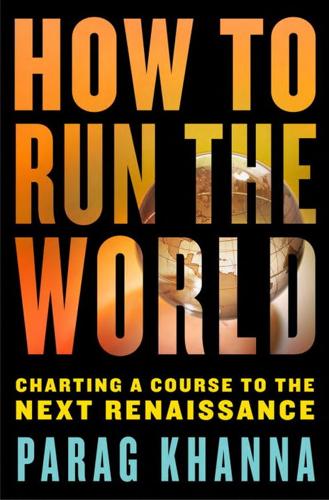
How to Run the World: Charting a Course to the Next Renaissance
by
Parag Khanna
Published 11 Jan 2011
The rival ports of Chabahar in Iran and Gwadar in Pakistan jockey to be called the “gateway to central Asia,” while Tangier and Tunis contend to be North Africa’s primary port of passage to Europe. Countries that want to catch up might have to set aside new physical spaces for high-productivity “charter cities” to be built from scratch, combining foreign capital and domestic labor. All of these experiments only reinforce our postmodern medievalism. But most countries on the lower rungs of the global economy won’t become the next Dubai anytime soon. What they should instead aspire to be is the next best thing.

Uncanny Valley: A Memoir
by
Anna Wiener
Published 14 Jan 2020
* * * There was a lot of discussion that year, particularly among the entrepreneurial class, about city-building. Everyone was reading The Power Broker—or, at least, reading summaries. Everyone was reading Season of the Witch. Armchair urbanists blogged about Jane Jacobs and discovered Haussmann, Le Corbusier. They fantasized about charter cities. They were beginning to notice something interesting—a potential opportunity, perhaps—taking place outside the windows of their ride-shares. They were beginning to catch on to the value of civic life. At a party, I met a man who leaned in and told me, with warm breath, that he was trying to get involved with an exciting new urbanism project.
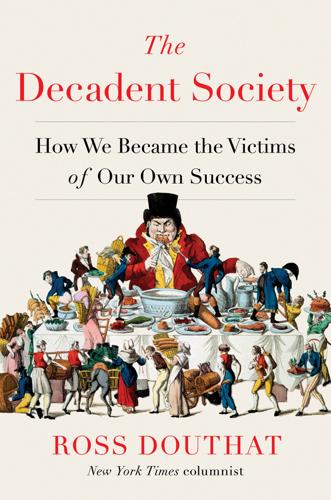
The Decadent Society: How We Became the Victims of Our Own Success
by
Ross Douthat
Published 25 Feb 2020
Like most such texts, it is longer on critique than on prescription, but Deneen ends with a vision for a new postliberal politics that might be described as local revolution, in which the oligarchic sclerosis of developed-world institutions is escaped by a refounding of virtuous communities on a more human and organic scale. These communities would not fit a simple ideological pattern. They might encompass everything from new versions of the utopian communes of the 1960s and the nineteenth century, to libertarian experiments such as charter cities, to attempts to re-create the monastic communities that arose under Rome’s imperial decay, to simple revivals of town-meeting democracy and other vanishing Tocquevillian forms. Describing the trajectory of these “intentional communities,” Deneen suggests that at first they could coexist with the broader liberal order and benefit from its sustainably decadent protection.
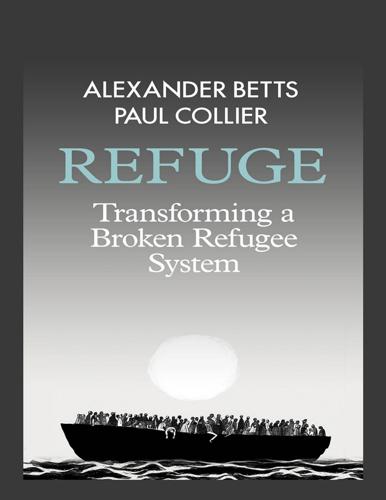
Refuge: Transforming a Broken Refugee System
by
Alexander Betts
and
Paul Collier
Published 29 Mar 2017
It would therefore be a wise investment for the global community to support ‘incubator cities’ in the haven countries that could serve each influx of refugees as need arose. An incubator city would need both good physical infrastructure and conducive regulations. As a regulatory haven it is related to an idea of Paul Romer’s, now Chief Economist of the World Bank, that he terms ‘charter cities’. Evidently, such places would have to be advantageous to the people and governments of the host countries as well as serving the needs of refugees. Incubator cities would serve a triple purpose. They would be advantageous for the host country, serve the needs of refugees, and prepare the recovery of the post-conflict economy of the country of origin.
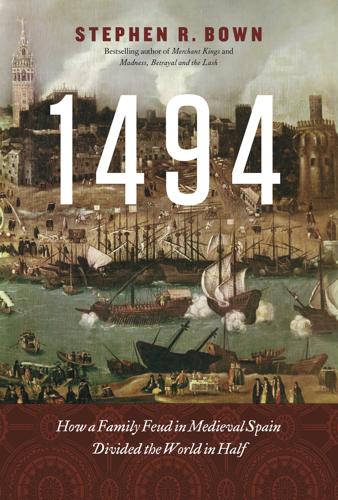
1494: How a Family Feud in Medieval Spain Divided the World in Half
by
Stephen R. Bown
Published 15 Feb 2011
While Ferdinand I retained rule over the old Holy Roman Empire, Philip II became king of Spain and of the newly declared United Netherlands. It was Philip who marshalled the riches of Mexico and South America to fund dynastic wars and the Counter-Reformation in Europe. The wealthy and thriving chartered cities of the United Netherlands were nearly as vital to the prosperity of the Spanish crown as the gold and silver bullion from the New World. While English and French privateers, denied the opportunity to trade and travel west of the Tordesillas line of demarcation, preyed on Spanish shipping in the Caribbean, in Europe the religious wars became ever more brutal and dogmatic.
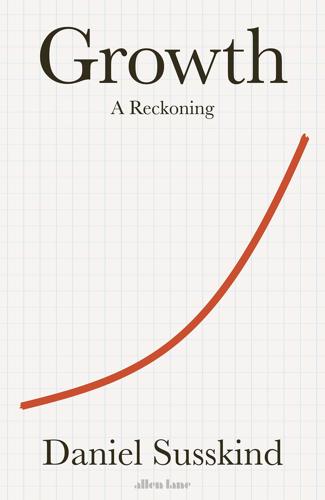
Growth: A Reckoning
by
Daniel Susskind
Published 16 Apr 2024
, www.johndcook.com/blog/2011/04/25/chasing-grants/. 76 ‘Transcript: Ezra Klein Interviews Patrick Collison’, The New York Times, 27 September 2022. 77 See, for example, BEIS, UK Innovation Strategy: Leading the Future by Creating It (July) 2021, assets.publishing.service.gov.uk/government/uploads/system/uploads/attachment_data/file/1009577/uk-innovation-strategy.pdf. 78 Pamela McCorduck, ‘Artificial Intelligence: An Aperçu’, Daedalus, 117:1 (Winter 1988), 65–83, at p. 72. 79 Susskind and Susskind, The Future of the Professions, p. 48. 80 Susskind and Susskind, The Future of the Professions, p. 49. 81 ‘I Was There When: AI Helped Create a Vaccine’, MIT Technology Review, 26 August 2022, www.technologyreview.com/2022/08/26/1058743/i-was-there-when-ai-helped-create-a-vaccine-covid-moderna-mrna/. 82 Lex Fridman discussion with Demis Hassabis, 1 July 2022: lexfridman.com/demis-hassabis/. 83 Tim Schröder, ‘The Protein Puzzle’, Max Planck Research, 2017. 84 Ewen Callaway, ‘Revolutionary Cryo-EM is Taking Over Structural Biology’, Nature, 10 February 2020. 85 Lex Fridman discussion with Demis Hassabis. 86 Matthew Sparkes, ‘DeepMind’s AI Uncovers Structure of 98.5 Per Cent of Human Proteins’, New Scientist, 22 July 2021. 87 Christian Anfinsen, ‘Studies on the Principles that Govern the Folding of Protein Chains’, Nobel Lecture, 11 December 1972, referenced in Lex Fridman discussion with Demis Hassabis. 88 Andrew Senior et al., ‘Improved Protein Structure Prediction Using Potentials from Deep Learning’, Nature, 577 (2020). 89 twitter.com/demishassabis/status/1620762940608765954. 90 Paul Romer, ‘Technologies, Rules, and Progress: The Case for Charter Cities’, Centre for Global Development, March 2010. 91 Daniel Susskind, A World Without Work: Technology, Automation and How We Should Respond (London: Allen Lane, 2020), p. 102. 9. A New Direction 1 Ludwig Wittgenstein, Culture and Value, trans. Peter Winch, ed. G. H. von Wright with Heikki Nyman (Chicago: University of Chicago Press, 1980), p. 3. 2 See, for instance, Danny Dorling, Slowdown (Yale University Press, 2020), p. 2 ‘Imagine that you have spent your life on a speeding train and you suddenly feel the brakes being applied.
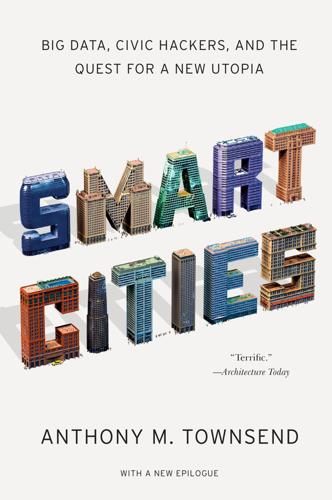
Smart Cities: Big Data, Civic Hackers, and the Quest for a New Utopia
by
Anthony M. Townsend
Published 29 Sep 2013
Copyright 1926, 1954, © 1991 by the Trustees for the E. E. Cummings Trust. Copyright © 1985 by George James Firmage, from Complete Poems: 1904–1962 by E. E. Cummings, edited by George J. Firmage. Used by permission of Liveright Publishing Corporation. 4Brandon Fuller and Paul Romer, “Success and the City: How Charter Cities Could Transform the Developing World,” (Ottawa, Ontario: The MacDonald-Laurier Institute, April 2012), 3. 5William J. Mitchell, E-Topia: Urban Life, Jim, But Not As We Know It (Cambridge, MA: MIT Press, 1999), 12. 6Jon Leibowitz, “Municipal Broadband: Should Cities Have a Voice?” National Association of Telecommunications Officers and Advisors (NATOA) 25th Annual Conference, Washington, DC, September 22, 2005, http://www.ftc.gov/speeches/leibowitz/050922municipalbroadband.pdf. 7Christopher Mitchell, Broadband at the Speed of Light: How Three Communities Build Next-Generation Networks (Washington, DC: Institute for Local Self-Reliance, April 2012, http://www.ilsr.org/wp-content/uploads/2012/04/muni-bb-speed-light.pdf. 8Dave Flessner, “Chattanooga area’s economic outlook brightens,” Chattanooga Times Free Press, last modified December 29th, 2011, http://www.timesfreepress.com/news/2011/dec/29/economic-outlook-brightens. 9Fiber-to-the-Home Council of North America, “Municipal Fiber to the Home Deployments: Next Generation Broadband as a Municipal Utility,” October 2009, http://www.baller.com/pdfs/MuniFiberNetsOct09.pdf. 10Claudia Sarrocco and Dimitri Ypsilanti, “Convergence and Next Generation Networks: Ministerial Background Report,” Organisation for Economic Co-operation and Development, June 17, 2008, http://www.oecd.org/internet/interneteconomy/40761101.pdf. 11Christopher Mitchell, “Oregon Town To Build Open Access Fiber Network Complement to Wireless Network,” Community Broadband Networks, last modified July 25, 2011, http://www.muninetworks.org/content/oregon-town-build-open-access-fiber-network-complement-wireless-network. 12Thierry Martens, remarks, Ideas Economy: Intelligent Infrastructure, The Economist, New York City, February 16, 2011. 13Andrew Comer and Kerwin Datu, “Can you have a private city?
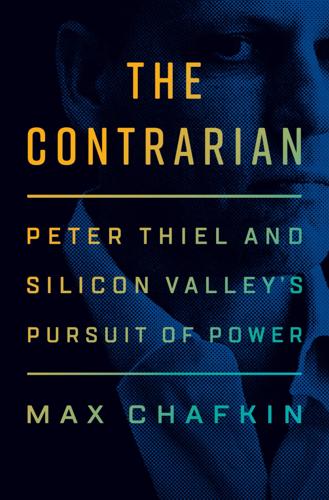
The Contrarian: Peter Thiel and Silicon Valley's Pursuit of Power
by
Max Chafkin
Published 14 Sep 2021
Davidson and Rees-Mogg argue that wealthy people should free themselves from their nationalities—and, of course, “the nationalist burden of taxation” and “the exploitation of the capitalists by workers”—by hiring private militias, securing citizenship in low- or no-tax countries, and enjoying a new libertarian paradise. The ideas would influence seasteading, of course, and a recent Thiel-funded project, Pronomos Capital, which is led by Friedman and is seeking to build “charter cities” in developing countries. Thiel’s budding movement also had a house political philosopher: Curtis Yarvin, who was then only known by his pen name, Mencius Moldbug. Yarvin, like so many in Thiel’s orbit, was a verbose and dyspeptic geek with an abiding distaste for the mainstream Left. He’d graduated from Brown and then dropped out of a computer science PhD program at Berkeley.
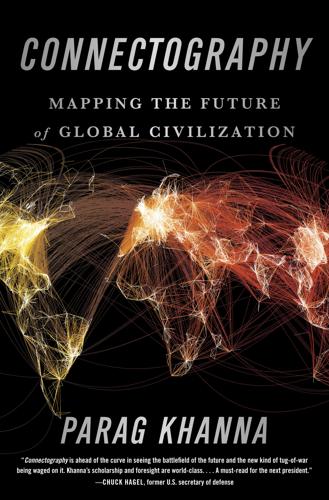
Connectography: Mapping the Future of Global Civilization
by
Parag Khanna
Published 18 Apr 2016
This has made it a hub for Chinese trading companies, Thai businessmen, and other investors who are working with the locally elected mayor—who is pushing hard for SEZ status—to make the creaking city an efficient business transit center. SEZs are also attractive to countries that want to preserve what functionality they have left and avoid becoming failed states. The NYU economist Paul Romer, a champion of adapting the Hong Kong or Singapore model to the third world, has promoted “Charter Cities” in Latin America and Africa in an attempt to leapfrog their governance and economic planning. Honduras, the most violent country in the Western Hemisphere, has recruited foreign engineers, lawyers, urban planners, and investors to run numerous politically autonomous Zones for Economic Development and Employment, each with an industry-specific master plan.
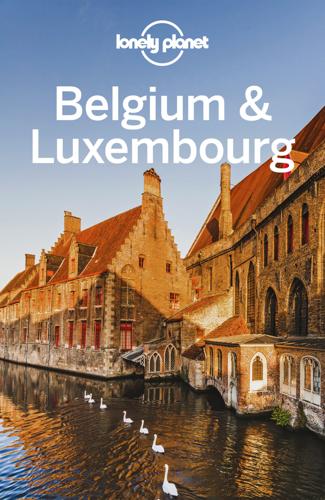
Lonely Planet Belgium & Luxembourg
by
Lonely Planet
Pre-booked Adventure Valley guests can use regular shuttle buses that connect Barvaux, Durbuy, Pré Georis and their activities park at Rome up to three times an hour (depending on reservations). Huy POP 21,280 Straddling the Meuse River between Namur and Liège, Huy (pronounced ‘wee’), was one of northern Europe’s first chartered cities (1066) and later became a major metallurgical centre within the Prince-Bishopric of Liège. The outskirts can be off-putting but the centre retains a small, delightful warren of medieval cobbled lanes between the pretty little Grand Place and the town’s quaint museum (%085 23 24 35; Rue Vankeerberghen 20; h2-5pm Tue-Sun Apr-Jun, Sep & Oct, to 6pm Jul & Aug, Fri-Sun & holidays only Nov-Mar) F, which occupies a very picturesque 1669 cloister.
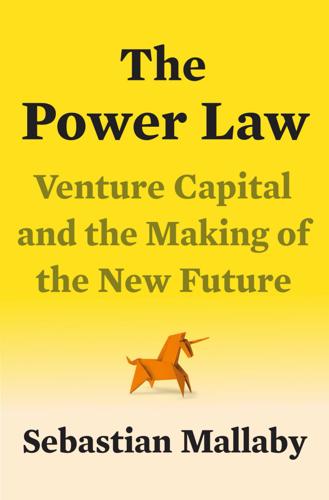
The Power Law: Venture Capital and the Making of the New Future
by
Sebastian Mallaby
Published 1 Feb 2022
BACK TO NOTE REFERENCE 31 China’s early startup successes illustrate the point that it is often easier for developing economies to outsource legal institutions than to create them. This is an insight often stressed by Paul Romer, a Nobel laureate and former chief economist at the World Bank who has promoted the controversial idea of charter cities. See Sebastian Mallaby, “The Politically Incorrect Guide to Ending Poverty,” Atlantic, July/Aug. 2010. BACK TO NOTE REFERENCE 32 Of the atmosphere in Shanghai in 1999, the prominent entrepreneur Bo Shao remembered, “Nobody knew what the hell a stock option was. I struggled for several months thinking how to translate the concept.”
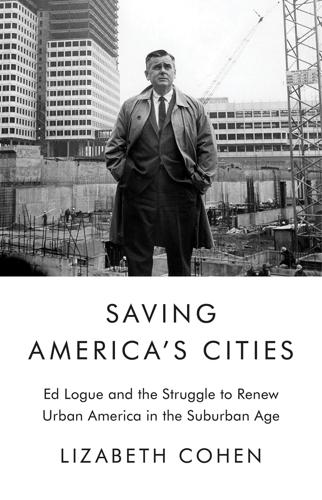
Saving America's Cities: Ed Logue and the Struggle to Renew Urban America in the Suburban Age
by
Lizabeth Cohen
Published 30 Sep 2019
blight blockbusting block grants Bonan, Seon Pierre Bond, Max bonding strategy, UDC Boston; Academy Homes; allies in redevelopment plan; Allston; Ames Building; architects; architecture; Back Bay; B-BURG program; Beacon Hill; Bunker Hill; business allies; cars; Catholic Church and; Center Plaza; Charles River Park apartments; Charlestown; charter; City Hall; “City of Ideas”; clubs; common renewal patterns; community activism; Copley Square; Cornhill Street; deterioration of; downtown renewal; Elevated Railway; Faneuil Hall; federal funding for redevelopment; Fenway; Government Center; highways; historic preservation; human renewal; Hynes’s downtown strategy; immigrants; industry and factories; John F.
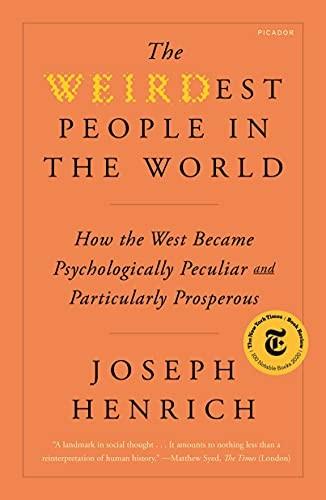
The WEIRDest People in the World: How the West Became Psychologically Peculiar and Particularly Prosperous
by
Joseph Henrich
Published 7 Sep 2020
Psychological developments such as greater impersonal trust, less conformity, broader literacy, and greater independence would have opened the flow of ideas, beliefs, values, and practices among individuals and communities within Europe. At the same time, the proliferation of voluntary associations and rising urbanization, especially the growth of free cities, would have expanded the collective brain by bringing diverse individuals together and aligning their interests. In fact, four voluntary associations—charter cities, monasteries, apprenticeships, and universities—all contributed to broadening the flow of knowledge and technology around Europe. At an individual level, people’s desire to come up with new ideas and improved techniques—to uniquely distinguish themselves—would have interacted synergistically with rising levels of patience, time thrift, analytic thinking, overconfidence, and positive-sum thinking (optimism).

Europe: A History
by
Norman Davies
Published 1 Jan 1996
There were a few isolated settlements on the sand-dunes, such as the abbey of Middleburg on Walcheren dating from 1120, or the hunting-lodge recently built at s’Gravenhaage or ‘Count’s Hedge’ in 1242. A number of fishing villages had found a precarious foothold in the lee of the dunes. Several of these had reached the status of a formal chartered city—Dordrecht (1220), Haarlem (1245), Delft (1246), and Alkmaar (1254). But none of them contained a fraction of the teeming population of the great textile cities of neighbouring Flanders. For centuries, the bishop of Utrecht exercised the main religious and secular authority. The delta ports had long served as staging posts on the costal trade.